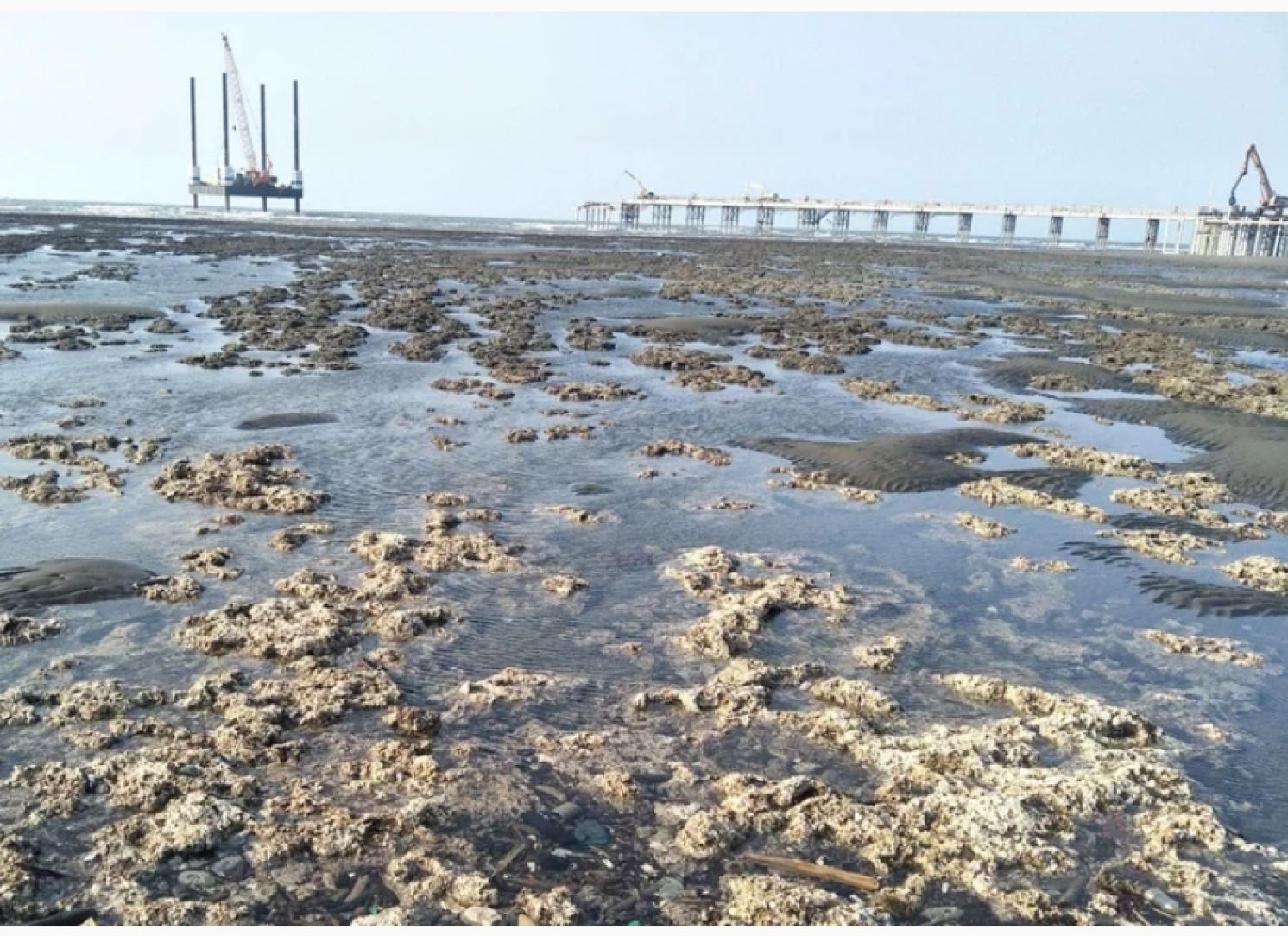
No Wonder DPP is Afraid of the Algae Reef Referendum
By Huang Shih-an
China Times, February 26, 2021
The campaign to collect enough signed petitions to file a referendum to protect the algal reefs at Datan, Taoyuan, has surprisingly created a new wave of social movement after Chinese New Year and has attracted the attention of high-level officials within the ruling Democratic Progressive Party (DPP). Normally, a referendum getting probably nowhere can’t draw any attention from the high ranks within the DPP. A case in point is the referendum to ban the imports of pork containing ractopamine, which was initiated by the Kuomintang (KMT) and has collected more than 600,000 signatures, has never received any serious attention from the DPP. So why is the algal reef referendum any different?
The answer is that the tactics of the algal reef referendum to gain social momentum and collect signatures is the same as the DPP used to defeat the KMT, then the ruling party. The algal reef referendum has gathered the support from various elements such as YouTubers, celebrities, scholars and writers and has quickly gone viral among young people’s social media and universities and colleges. All of a sudden, the algal reef referendum has become a new wave that erodes the DPP’s foundation of young voters.
Furthermore, the DPP is hesitant to have a fixed position on the referendum. As the political situation remains unclear, the DPP is worried that if it chooses to confront the civic organizations too early, the cost will be to lose allies and create enemies in the coming elections.
For these reasons, the DPP can only use the smear campaign at the moment by blaming everything on the KMT while not addressing the concerns of the civic groups directly. First, the DPP claims that its proposed coastal land development for liquefied natural gas (LNG) receiving station is much smaller in scale than the previous KMT version and will keep environmental impact to a minimum. The DPP also uses government funds to sponsor advertisements in an attempt to sway the public opinion. However, according to the 2017 briefing materials of Industrial Development Bureau, Ministry of Economic Affairs, and CPC Corporation submitted to the environmental impact assessment committee, the proposed land size for the said development was the same 232 hectares. It shows that the DPP will only consider reducing the land size when under the pressure from environmental groups.
Second, the DPP attempts to undermine the legitimacy of the referendum by accusing the voluntary environmental movement as a political scheme initiated by the KMT. However, since the algal reef referendum is supported not only by the KMT, but also by Taiwan People’s Party and New Power Party political figures, the DPP’s accusation is self-defeating.
Third, the DPP claims that the KMT’s purpose for supporting algal reef referendum is to sneak in the nuclear power plant referendum. In fact, these two referenda are not related to each other. The algal reef referendum initiated by the environmental group is against the construction of the third LNG receiving station in the algal reef conservation zone, it does not oppose the LNG receiving station to be built at another location. Why does the DPP have to mix them together?
The DPP’s amendments to the Referendum Act in June 2019 have de-linked any future referendum from major elections, thus greatly reduced the possibilities for civic organizations to launch referendum. The key is to make it harder for any single-issue referendum to pass the legally required signature threshold without coupling with election or other referendum. As a result, the delink will inevitably encourage the cooperation between civic organizations and opposition parties. Judging from the current situation, the DPP’s arbitrary decision to delink referendum from election, so as not to repeat election defeat, has backfired, similar to the lowering of threshold for recall of elected officials.
If the land size for development can be reduced, then the relocation of the LNG receiving station can also be an option for the government. Currently, the collection of signatures for the algal reef referendum is still ongoing. If the referendum is passed, the government will have to alter the location for the third LNG receiving station. It is also possible that once the number of signatures meet the legal requirement, the DPP will announce the relocation in an effort not to lose more young voters.
From: https://www.chinatimes.com/opinion/20210226004845-262105?chdtv